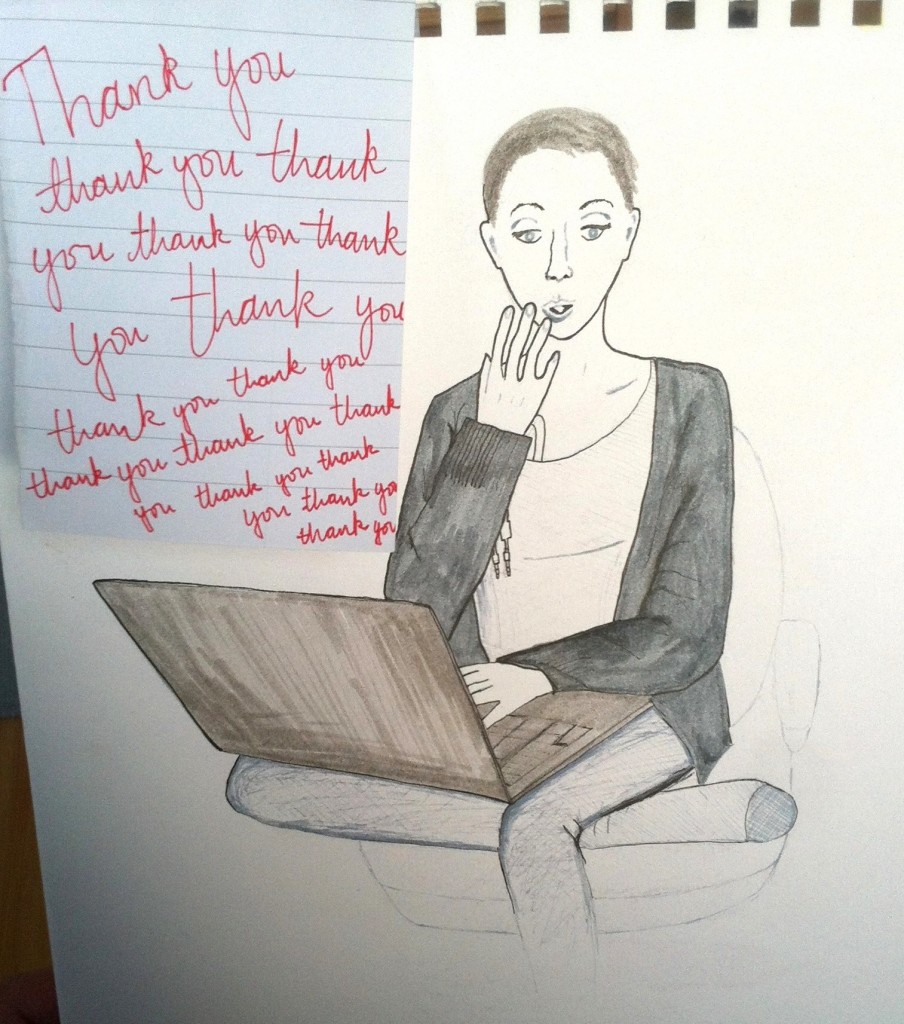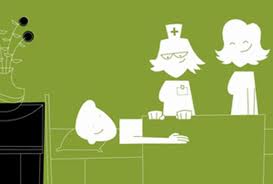How do you thank someone for saving your life?
Today is seven months exactly since I received a bagful of stem cells from an anonymous donor. Six million of them, via my Hickman line. I lay on a hospital bed, wiped out from a week of chemo and radiotherapy; I’d just had the most intense treatment that can be given to a human being without killing them.
A nurse hovered around, intermittently checking my blood pressure and heartbeat for signs of a reaction. As the cells flowed through the tube and into my veins, the room was permeated with the unmistakable scent of boiled sweetcorn. (I was warned this would happen. For some reason stem cells smell like sweetcorn).
I thought of the stranger who had willingly given his cells to save my life. Who had undergone various blood tests, an ECG, then four days of growth hormone injections to stimulate his cell production – and the side effects of aching bones. Who had sat for four or five hours with a cannula in his arm while his blood was filtered through a machine. For someone he’s never even met.
All I know about my donor is he’s 24 (a year older than me) and a ‘chunky lad’. In two years’ time, I’ll be allowed to meet him if I want – and if he agrees. Until then, the rules say, I can send him an anonymous thank-you message, as long as I’m well enough.
Up until now, I haven’t been well enough. The last few months have been rough. For a while it looked like the transplant hadn’t worked – I hadn’t ‘engrafted’, my bone marrow wasn’t producing blood cells. I was finally discharged from an isolated hospital room 53 days after the transplant, but with no white blood cells, my immunity was non-existent, so I was virtually house-bound. I couldn’t go to public places. I could only see a handful of close friends and relatives. Every couple of days I had to go to hospital to have blood and platelet transfusions, since my body wasn’t making enough to keep me going. I had to inject myself daily in the thigh with growth hormone factor.
In the end the doctors asked Chunky Lad for a few more cells, and he obliged. I received a top-up in autumn – though by this time my lazy marrow seemed to have woken up anyway, and was beginning to produce cells. Whatever the reason, I could finally escape the transfusion room.
But then there was the Graft versus Host Disease. Tell people you have cancer and you get some well-deserved sympathy. Tell people you’ve got Graft versus Host Disease and you get a blank expression. GVHD occurs when the donor’s cells recognise yours as foreign and launch their assault, usually attacking the liver, the digestive system – or in my case, the skin. For months now I’ve suffered from constant itching and rash. My skin got so dry that the soles of my feet cracked and bled; walking became painful. The surface of my whole body was splintering off like dandruff – I couldn’t move without shedding a flurry of white flakes. No amount of ointments or creams seemed to have an effect, and I was forced to take high doses of steroids, which weakened my muscles, and kept me awake at night.
It’s still a daily struggle, and I have to spend several hours each day applying creams just to keep the itching at bay. But now I’m having specialist photopheresis treatment at a dermatology clinic, where I’m plugged into a machine for a couple of days a fortnight. It’s a pain having a Hickman line, and the treatment will carry on for at least six more months. But the GVHD seems to be slowly improving a little. And now his cells are attacking mine a bit less, I think it’s time I wrote Chunky Lad a thank-you note.
The only question is what to say. To this total stranger whose blood is now flowing through my veins. To this person I’ve never met, who by a complete accident of chance, happened to have the same HLA tissue type as me – closer to me than my own sister, who, like the majority of siblings, was not a match.
With all the complications that arise from a transplant, it’s hard not to feel downcast, at times. Sometimes the future does look bleak. But I remind myself that it’s because of my donor that I can even contemplate a future.
He’s probably saved my life. And there’s no way I can thank him enough.

